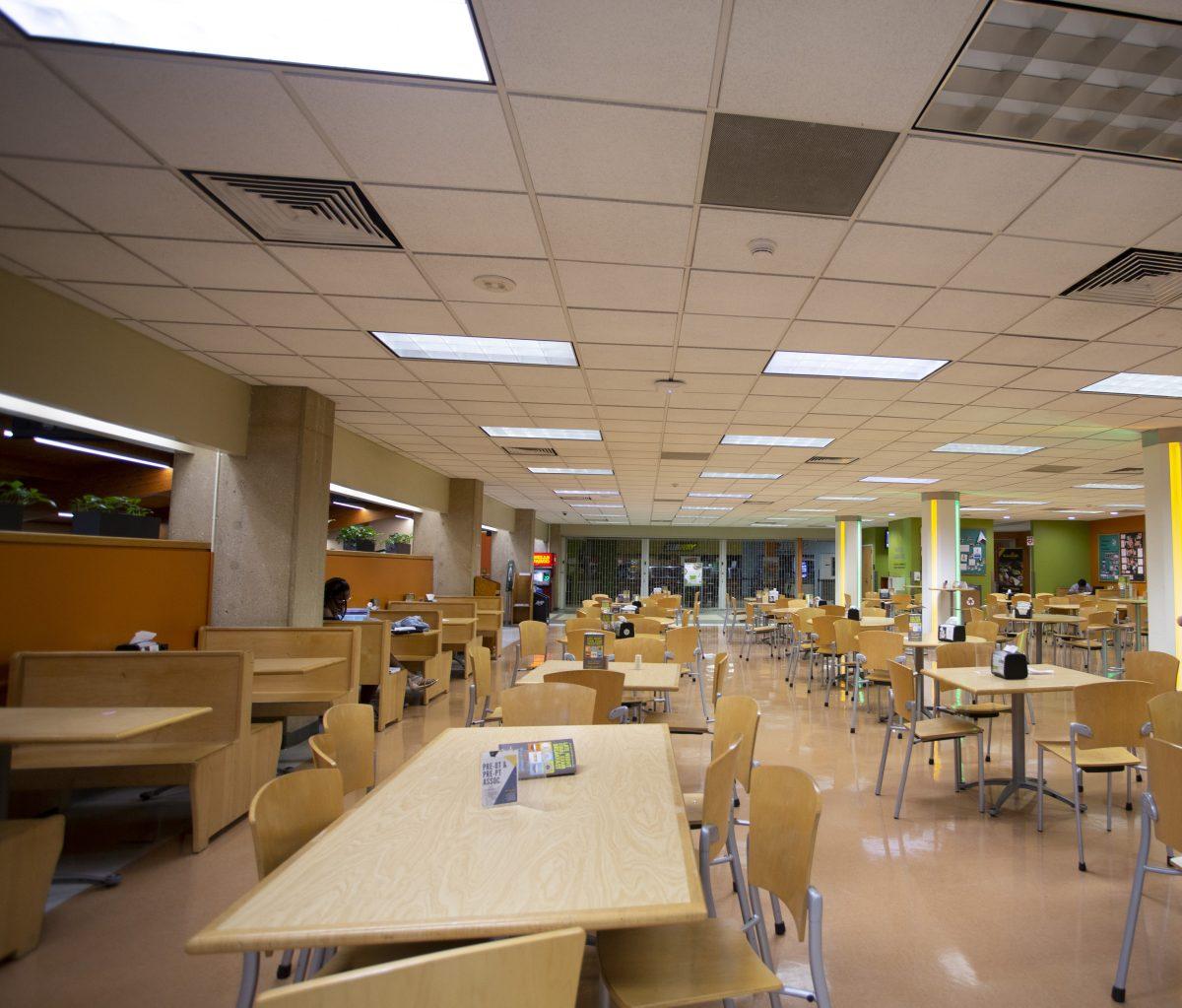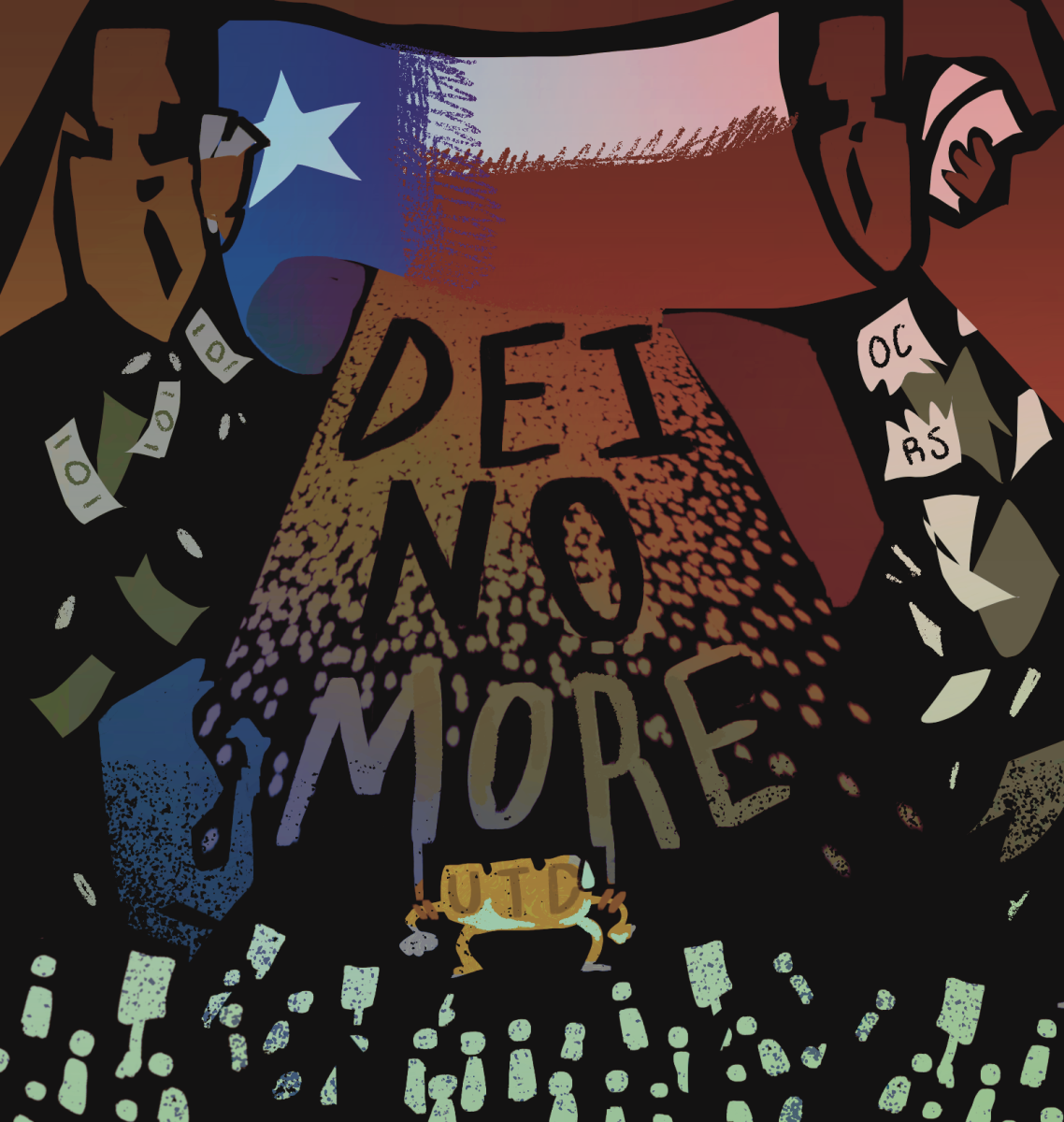University officials are working with Chartwells to implement a new eight-year food service contract, with an option to extend it for a full 12 years.
Bryce Brownlee, UTD’s director of the Office of Contract Administration, said the university received two bids in a January 2018 request for proposals — one from Chartwells and one from Aramark, which previously provided campus food service to UTD until 2008.
Brownlee said proposal evaluations wrapped up in mid-November 2018. After hearing suggestions from an evaluation committee, university officials made the decision to continue with Chartwells in early December 2018 under a new, renegotiated contract.
Changes under the new contract include more rigorous background checks for Chartwells employees, an increased cut of Chartwells’ profits and various new retail and catering options, Brownlee said. The contract will be implemented in stages over the next few semesters.

Director of Auxiliary Services Carrie Chutes-Charley said one of the main goals of the new contract will be the continued growth of the university’s food service program.
“(Chartwells) is doing good but we want better. We need to keep building our program, that’s probably where we’ve been the busiest over the last ten years,” Chutes said.
Chutes has overseen the Chartwells contract in her role as director since 2009. She emphasized Chartwells’ willingness to work with university officials to grow the food service program.
“We’re building something (new) at least every two years. So that’s a lot of collaboration, a lot of investment and management of time and resources,” Chutes said.
UT System policy requires student input in the decision-making process for the food service contract, which occurred over the course of the spring and fall 2018 semesters.
Former Student Government President J.W. Van Der Schans said he did not directly approve the decision to continue with Chartwells but represented Student Government in discussions over the two bids in the spring semester. His term as SG president ended in April 2018, before a decision was made.
“I don’t think … we were in the decision making process towards the end,” Van Der Schans said. “I guess they took our suggestions and then made the decision, but it would have been interesting to be a part of the process.”
Van Der Schans said he had not been made aware of the university’s decision to go with Chartwells. He assumed that the decision would be made over the summer and would instead involve his successor, current Student Government President Eric Chen, he said.
Chen did not respond to requests for comment. Current Vice President Carla Ramazan said that to her knowledge, no one from SG had been involved in the decision at any point this year.
The new contract comes amidst organizing efforts to unionize Chartwells workers. Workers alleged Chartwells managers engaged in sexual harassment, managerial misconduct and lack of compliance with state mandated training. The National Labor Relations Board will hold an election to unionize on May 2.
Chutes said since she was hired to oversee Auxiliary Services’ contracts in 2009, there had never been any incident that would give her cause to consider cancelling the Chartwells contract.
Per the contract, she has been able to review various documentation of Chartwells operations, such as a current list of all Chartwells employees and detailed monthly profit and loss reports, and has seen no evidence to support the allegations, Chutes said.
She added that she is able to request a list of active employees at any time, and typically does so twice a year, citing high turnover and a large workforce. Chutes said she never had cause to request the list beyond the routine biannual checks, nor to meet with Chartwells to formally rectify any large-scale issues, but said that should the need arise, she’s confident they’d be able to resolve any problems collaboratively.
“Our contractor — no matter what contract it is — has to be given the opportunity to rectify any situation,” Chutes said.
The contract also gives the university the right to conduct an independent audit of Chartwells for up to four years after the expiration of the contract. Such an audit has never occurred in her time, Chutes said.
“They’re very transparent with us. We haven’t had a cause to audit (Chartwells),” Chutes said.
Brownlee said there were several clauses in the contract that ensure both the university and Chartwells have a vested financial interest in maintaining Dining Services as a joint operation, such as a profit share, a performance bond and a mandated investment by Chartwells into university infrastructure.
“The performance bond is basically insurance that’s purchased by the contractor that if (the university) has money riding on their performance — which in Chartwells’ case, we do — they would pay out in the case of non-performance,” Brownlee said.
Brownlee said that collecting on the bond would be a last-resort option for the university.
“In order to collect that (bond) we’d have to show (in court) that Chartwells had been furnished information about what they needed to correct and had been allowed the appropriate time in the contract to correct it and then they failed to do so in a way that harms UT Dallas.”
Chutes said the university had never had cause to collect on the bond and that the relationship between Chartwells and Auxiliary Services has always been very collaborative.
“Nothing has been contract-threatening,” Chutes said. “They’ve been a good partner in … helping our university to grow to feed all of the new mouths that have come on campus over the years.”

















